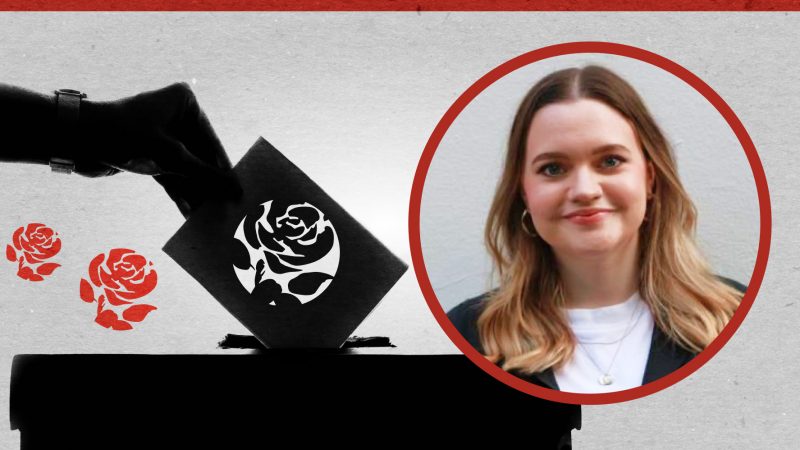
This year, Labour will make history. For the first time in its 120-year history, disabled people will have a voice and seat on the ruling national executive committee. We can’t let this opportunity go to waste. If elected, I won’t sit quietly at the table. I’ve never been afraid of challenging our party over its disregard for our lives and the issues that affect us. I’ll take you with me as we fight to embed the disabled people’s movement into Labour.
I was introduced to socialism because, like so many disabled people, I experienced the cruel hostility of Tory austerity. When I became seriously unwell in 2015, I faced years-long waiting lists for treatment, cuts to local services and the indignity of the work capability assessment. It would’ve been easy to feel powerless, but the movement showed me just how much power I had. I joined the Labour Party and campaigned with Disabled People Against Cuts and Unite Community. Together, we protested and demanded an end to the vicious policies enacted by the DWP.
I learned the power of collective action and solidarity. The pandemic has only further proved that the disabled people’s movement and the trade union movement need to unite in the fightback against a government intent on eroding our rights. But our party must first look inwards if we’re going to make real change. That starts with strengthening our equalities structures and standing shoulder to shoulder with all minorities.
If I win, we won’t sit through the repeated denials that it’s just “too difficult” or “too expensive” to open up our meetings and conferences to disabled members. We won’t wait any longer for the democratic structures and organisation that we were promised in the democracy review. We won’t accept social care policies that only offer tepid improvements to merciless Tory austerity.
But I can’t do this alone. The disabled people’s movement won the creation of this role, now we have to fight to make the most of it. My campaign isn’t just about winning one seat. It’s about winning a Labour Party where disabled people get to take the decisions that affect us, and showing the political establishment what that looks like. I would stay accountable to the movement, and would focus my work on accessibility, democracy and policy-making.
Accessibility
It is unacceptable that for so long disabled members have been shut out of party spaces. It should never have been such a battle to simply access meetings and events, but it has been and we’re weary. Disabled members have so much to contribute – but we can’t democratise the party or develop policies if we’re continually shut out of the conversation. I’ll fight to transform Labour from the ground up, with a party-wide accessibility review to ensure our structures and decision-making are as inclusive and open as possible.
Remote access is not the solution for all members, but for some of us it’s vital. It’s been shown to be not only possible but achievable, and I will argue for remote meetings and conferences to be kept, improved and extended. I’ll fight to ensure accessible formats are normalised in party communications. It’s not right that D/deaf and disabled people still can’t fully engage in party activity or read our campaign materials.
Democracy
I’ll fight for a Labour where disabled members have the space and power to lead on the issues affecting us. Collective strength needs organisation, and I’ll fight to get the disabled members structures we were promised in the democracy review established at Labour’s next conference. We have a severe lack of disabled candidates and representatives standing for office. I’m calling for a Disabled Members’ Leadership Programme, alongside resources and support, so the party can remove the barriers that we face to being elected.
Policy-making by us, for us
I want to ensure we get a genuine say in the party policy that affects us. I brought the motion that changed Unite policy to Stop and Scrap Universal Credit, and the Trades Union Congress and Labour followed suit. If I’m elected to Labour’s NEC, I’ll continue to work with the campaigns to scrap this and work capability assessments. Both are hated policies that have damaged the lives of millions and forced disabled people to live in indignity and poverty.
I’d proudly defend the proposal for a National Independent Living Support Service (NILSS). These are transformative proposals put together by disabled trade unionists, based on the key principles of independent living, reimagining what society would look like if we had the support we need.
Finally, we need to implement Labour’s commitment to the social model of disability. It is society that disables us, not our impairments, and improving disabled people’s lives means ensuring this fundamental shift in understanding.
We know the strength of our movement. It was disabled Labour members that won the right to this vote. After years of fighting and never giving up, we are on the cusp of fundamental change. I’m from our movement and I’ll fight for our movement. So please vote for me, Ellen Morrison, to be your first ever NEC disabled members rep.




More from LabourList
Letters to the Editor – week ending 22 February 2026
‘The coastal towns where young people have been left behind by Whitehall’
‘How Labour is modernising transport in Wales with fairness at its heart’